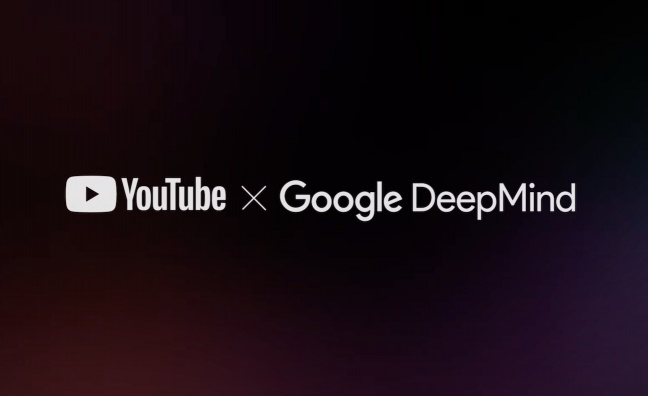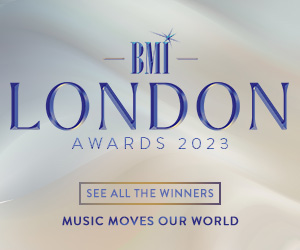YouTube this week revealed plans to address the use of generative AI on the platform, including giving labels the opportunity to request the removal of music content that mimics artists.
Today the platform is talking about the opportunities for artificial intelligence and music, as it unveils its first set of AI-related music experiments – Dream Track for Shorts and Music AI tools – built in collaboration with Google DeepMind.
It follows the partnership between YouTube and Universal Music Group on agreed AI music principles and the YouTube Music AI Incubator. YouTube is also working with other music companies on its latest AI innovations for artists.
In a blog post by global head of music Lyor Cohen and Toni Reid, VP, emerging experiences and community products, they wrote: “As a myriad of companies map out their AI approach, we want ours to be defined by partnership and responsibility. That's why we developed a set of AI Music principles and a Music AI incubator published earlier this year that are rooted in responsible collaboration. Since then, we’ve been exploring the possibilities of how AI can empower creativity alongside artists, songwriters, producers and our partners while also identifying its challenges. By testing and learning, we can better understand how to enhance artist and industry opportunity and deepen fan engagement, benefiting the broader music community.”
Welcoming the latest developments, Universal Music Group chairman & CEO Sir Lucian Grainge said: “We have a fundamental responsibility to our artists to ensure the digital ecosystem evolves to protect them and their work against unauthorised exploitation, including by generative AI platforms. At the same time, we must help artists achieve their greatest creative and commercial potential – in part by providing them access to the kind of opportunities and cutting-edge creative tools made possible by AI. In this dynamic and rapidly evolving market, artists gain most when together we engage with our technology partners to work towards an environment in which responsible AI can take root and grow. This is not a time for passivity. Only with active, constructive and deep engagement, can we build a mutually successful future together.”
“With each major leap in technology, the music industry navigates a fresh set of challenges and opportunities," said Warner Music Group CEO Robert Kyncl. "It's not always the case that, from the outset, tech platforms partner with artists, songwriters, labels and publishers to experiment, iterate, and find possible solutions. YouTube is taking a collaborative approach with this Beta. These artists are being offered the choice to lean in, and we’re pleased to experiment and find out what the creators come up with.”
Dream Track in YouTube Shorts is powered by Google DeepMind’s most advanced music generation model to date, Lyria. The experiment is designed to help explore how the technology could be used to “create deeper connections between artists and creators, and ultimately, their fans”.
Nine artists including Alec Benjamin, Charlie Puth, Charli XCX, Demi Lovato, John Legend, Papoose, Sia, T-Pain and Troye Sivan are experimenting with YouTube, and giving a small group of select US creators the chance to create unique soundtracks of up to 30 seconds for their Shorts. By typing an idea into the creation prompt and selecting a participating artist that appears in the carousel, an original Shorts soundtrack featuring the AI-generated voice of that artist will be produced for the creator to use in their Short.
“I'm extremely excited and inspired,” said Charlie Puth. “YouTube has been a great partner in outlining their approach to AI and understands the need to work together to develop this technology responsibly, ensuring it will accelerate creativity instead of replacing it.”
“I have always been about pushing the boundaries of technology and harnessing it to make the most interesting music for my fans,” said T-Pain. “Who knows what the future holds but joining hands with YouTube and Google to help shape that future feels like a great first step.”
Artists are also experimenting with Music AI tools with YouTube.
“The artists, songwriters and producers in the Music AI Incubator are helping us test, learn, gain feedback and hear ideas so that we can develop the best experiences possible for our community of artists, viewers and fans,” continued the blog post. “It was clear early on that this initial group of participants were intensely curious about AI tools that could push the limits of what they thought possible. They also sought out tools that could bolster their creative process.
“As a result, those early sessions led us to iterate on a set of music AI tools that experiment with those concepts. Imagine being able to more seamlessly turn one's thoughts and ideas into music; like creating a new guitar riff just by humming it or taking a pop track you are working on and giving it a reggaeton feel. We’re developing prospective tools that could bring these possibilities to life and Music AI Incubator participants will be able to test them out later this year.”
Cohen and Reid added: “Combined, these experiments explore the potential of AI features to help artists and creators stretch their imaginations and augment their creative processes. And in turn, fans will be able to connect to the creatives they love in new ways, bringing them closer together through interactive tools and experiences. All of this will help us iterate and enhance the technology, informing applications for the future.”

 FOLLOW
FOLLOW 







